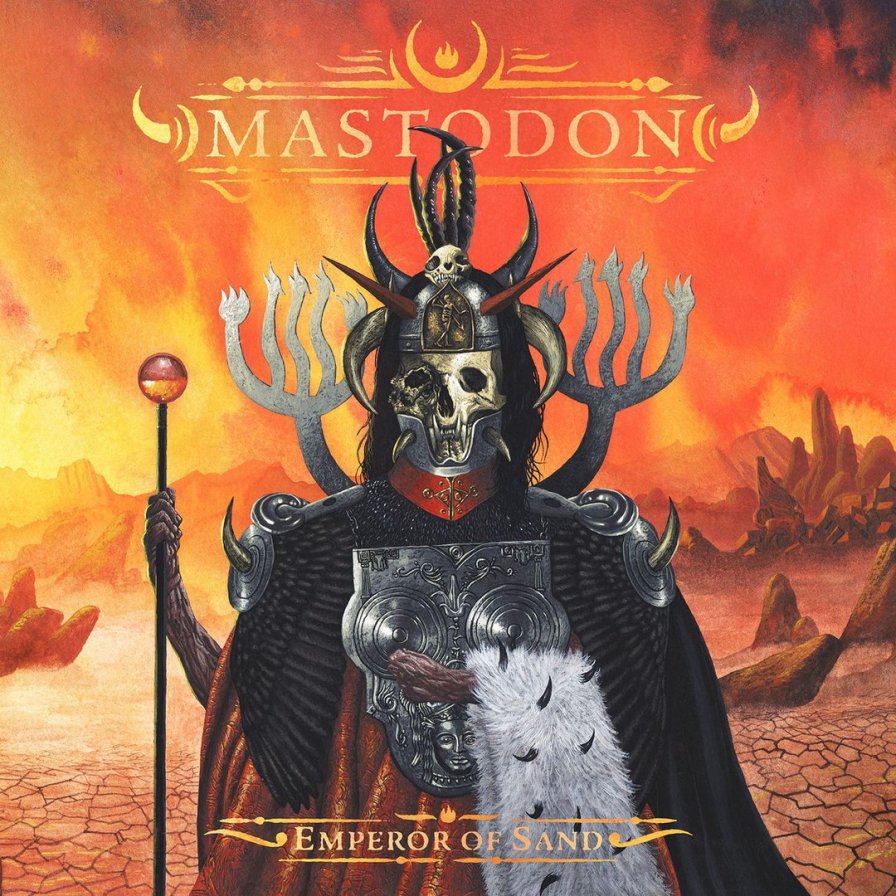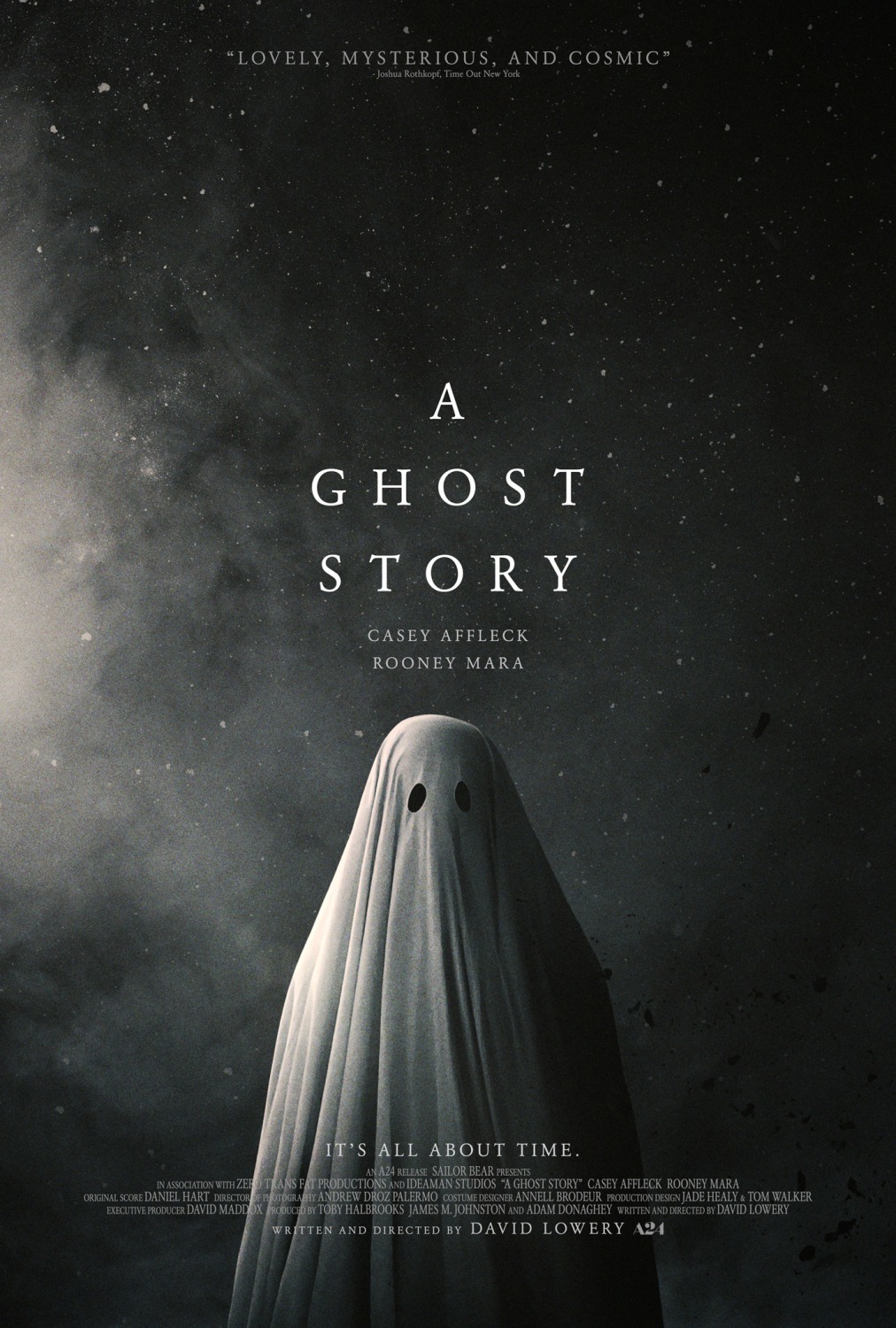Cementing their position as the vanguards of contemporary metal, Mastodon’s seventh studio album “Emperor of Sand” evades the trappings of any single sub-genre.
Over the course of nearly two decades, Mastodon has honed their blend of hardcore, progressive and doom metal into an instantly recognizable sound. Following the immensely technical and lofty “Once More ‘Round The Sun,” “Emperor of Sand” is a further departure from “Leviathan” era 14-minute sludgy epics — for better or worse.
While the album’s tracks are more compact than past releases, Mastodon’s narrative abilities are stronger than ever. Drummer-vocalist Brann Dailor described the story behind “Emperor of Sand” as “A Sultan in the desert hands down a death sentence to this guy. He’s running from that. He gets lost, and the sun is zapping all of his energy akin to radiation.”
The concept developed naturally over time, but the album’s inspiration was born in tragedy. Dailor’s mother endured chemotherapy having battled cancer for the last 40 years, bassist-vocalist Troy Sanders’ wife was diagnosed with breast cancer, and guitarist Bill Kelliher’s mother had recently passed from a brain tumor.
The despair and oppression which fueled the creation of “Emperor of Sand” is apparent in the opening track. “Sultan’s Curse” is a thunderous thrasher split by melodic and moody choruses. Intricate riff work denotes the prog metal overtones which will dominate most of the record before giving way to the mid-tempo, mainstream second track, “Show Yourself.”
Only four minutes into the album, “Show Yourself” will be the dividing point for Mastodon’s growing fan base. Anthemically catchy and surprisingly straightforward, the radio-ready piece is a bold statement of the band’s dedication to innovating its sound.
Until the halfway point, “Emperor of Sand” stays true to the rhythmically complex precedent set by previous album “Crack the Skye,” drawing on composition similar to “Rush.”
The sixth track marks a shift in the album’s tone and a return to tradition. Consistently textured vocals and jagged guitar shredding permeate “Word to the Wise” while still incorporating Mastodon’s new progressive sound.
“Clandestiny” slams low registers that hit the listener like a truck, “Andromeda” incorporates stoner metalesque distortion delivering an abrasive grit, and a vocal cameo from Neurosis’ Scott Kelly drives “Scorpion Breath” to new extremes of brutality.
“Emperor of Sand” concludes with the most sonically complex piece of the group, “Jaguar God.” Bluesy vocals are supported by an acoustic ballad before morphing into a banger gushing with shows of technical skill.
While Mastodon successfully balances its new polished tones with more traditional ear melting walls of sound, their most recent album doesn’t actually integrate the two.
Instead, “Emperor of Sand” feels more of a heavy-handed compromise than a blending of approaches.
Producer Brendan O’Brien, known for his work with ‘90s grunge icons Pearl Jam and Stone Temple Pilots, was instrumental in the creation of Mastodon’s highly experimental fourth album “Crack The Skye.” O’Brien returned to produce “Emperor of Sand,” and his impact is clear.
Much like “Crack The Skye,” much of the vocal work has been smoothed out and imbued with a breadth of emotion. A number of instrumentals have had their edges sanded down in favor of a more palatable end product.
These traits fit well with previous conceptual albums, but “Emperor of Sand” attempts to include the band’s original hardcore sound alongside their new innovation. Both Mastodon and O’Brien attempt to appease both traditional and new fans, resulting in a very confused album.
This isn’t to say “Emperor of Sand” is lacking for skillful execution or memorable riffs. The detail-oriented approach of recent Mastodon has been toned down without sacrificing beauty, and the band successfully tackles new genres in just about every other song.
Unfortunately, change is never an easy thing. Though Mastodon may have gracefully handled its transitioning style, fans of the nearly two-decade old band feel left behind.
Whether Mastodon should be beholden to their listeners is debatable, but its melding of sounds, old and new, is undeniably clumsy.
“Emperor of Sand” may be beautifully composed to showcase Mastodon’s experience and skill, but is symptomatic of a larger problem.
By trying to place the doom-fueled chaos which encapsulated old time fans alongside more progressive influences, neither half of the band’s divided fan base received something they can fully enjoy. Mastodon’s “Emperor of Sand” is a compilation of impressive, yet disjointed songs.
Rating: 3/5 stars
The Crow’s Nest rates podcasts between one and five stars, with five stars being the highest possible score.




Great record review is off base.